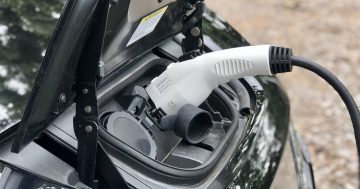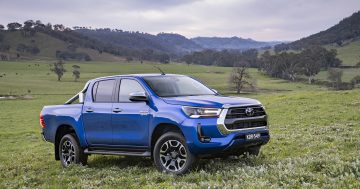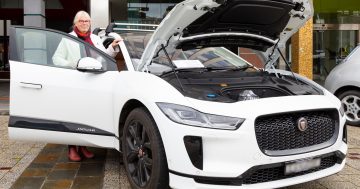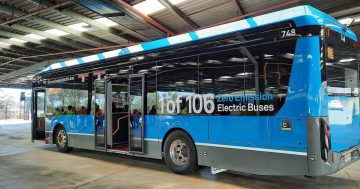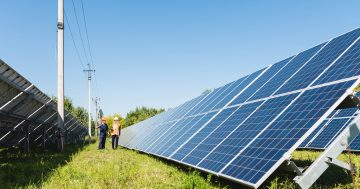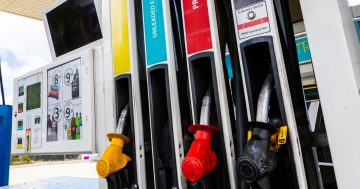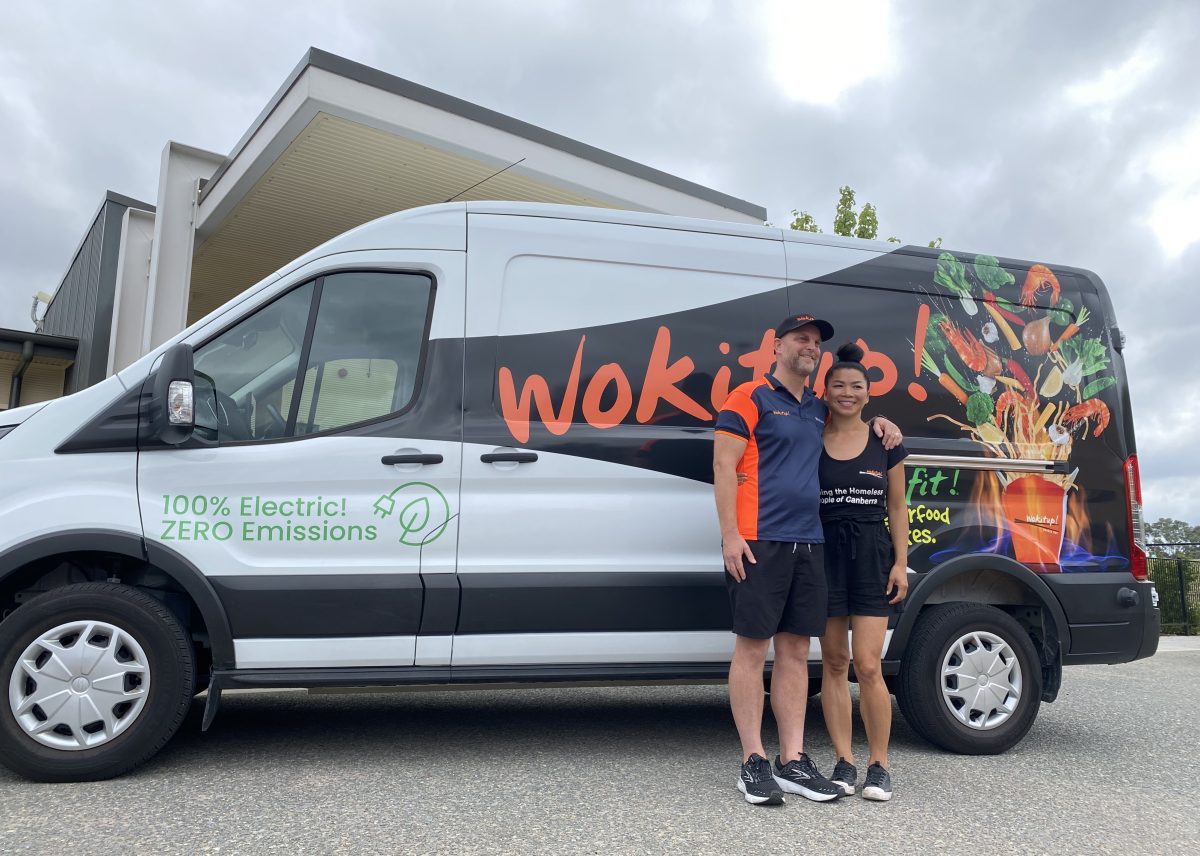
WokItUp co-founders Chris and Linda Comb have used a new grant to help buy an electric van to deliver supplies across Canberra. Photo: Claire Fenwicke.
Co-founders of WokItUp Chris and Linda Comb have always wanted their business to reduce its emissions but the cost of commercial electric vehicles had been holding them back.
They’re among the first recipients of the new Business Zero Emissions Vehicles (ZEV) grants scheme which offers $20,000 to help businesses take the final step in transitioning their fleets.
The pair bought a Ford e-Transit to deliver supplies across their Canberra stores. It was always the plan but the “quite significant” capital outlay meant originally it wasn’t going to happen for another one to two years.
Ms Lamb said the benefits had gone beyond saving money on fuel.
“The biggest benefit for me is not having to go to the petrol station,” she said.
“It’s just a matter of plugging in as soon as you get home or when the sun’s out, it’s super convenient.”
Goodwin Aged Care Services was another recipient, using the $20,000 to help purchase two 12-seat electric minibuses to replace their old internal combustion engine versions.
The buses will be used each day to help clients attend Goodwin Day Clubs, exercise and stay active.
CEO Stephen Holmes said the vehicles were at a replacement age, so the timing of the grant was “ideal”.
“We do a lot of kilometres across the ACT and the South Coast of NSW, and that comes with the normal vehicle costs,” he said.
“So we certainly felt from a business case that moving to an electric vehicle would certainly be better in the longer term for us.”
He explained electric buses still weren’t particularly affordable for the average small business, and even for Goodwin the capital outlay had been a challenge.
“The grant money that we used from the ACT Government probably contributed about 15 to 20 per cent of the capital cost,” Mr Goodwin said.
Grassroots sustainability organisation SEE Change was the third recipient, buying a Peugeot e-Expert van to support activities for its office, such as delivering electric bikes and merchandise to events.
These first-time grants have been designed to entice more businesses to take up electric vehicles.
Energy and Emissions Reduction Minister Shane Rattenbury said while there had been a lot of “enthusiasm” from Canberrans making the switch, businesses were a different story.
“This is a sector that has probably been a little bit slow on the uptake,” he said.
Given commercial vehicles are used more than passenger vehicles, their emissions profile tend to be higher. So too are their running and maintenance costs.
Mr Rattenbury admitted there could be some “tension” from those who felt some of the recipients may have been able to afford the technology already.
But he felt the grant recipients chosen were appropriate.
“[This is] a relatively small grant to help tip people over, but also to be leaders, the ones who are willing to step over first, be involved in promotional activities and to help bring the measure to the wider community about the viability of these sorts of vehicles.”
As supply chains for commercial vehicles continue to improve, and charging infrastructure increases throughout Canberra, it’s hoped even more commercial ZEVs will be on the road in the future.
It could also help bolster a second-hand market.
“In Australia we are seeing a significant increase in the type and range of electric vehicles that are available,” Mr Rattenbury said.
“With more vans and buses coming on the market, this grants program encourages businesses and community organisations to consider the benefits of transitioning from an old petrol or diesel fleet to a ZEV.”
Find out more about the Business Zero Emissions Vehicle Grants program online.












